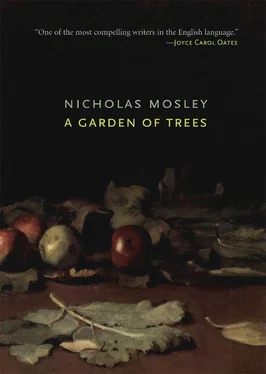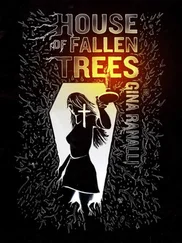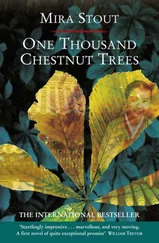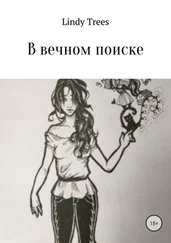“No,” Annabelle said.
“I could not have come in without my entrance. I was a greyhound. And now I am unconscious. Do you think I am unconscious?”
“No,” Annabelle said.
“And perhaps I should have a warm blanket to cover me and a little brandy perhaps.”
“I will get it,” Annabelle said.
Peter lay on the sofa. He covered himself with cushions, so that only his feet and head were visible. Annabelle sat on his legs. He sipped his brandy. There was no formality now. He said—“What does that Alice mean by our serious conversations? She is the first person I have had a serious conversation with in my life.”
“We have been talking about Alice,” Marius said.
“I heard you. And what are you going to do about it?”
“About what?”
“About Alice who is so difficult to help and your boy who has not yet had bricks thrown at him and the hungry who are not fed and me who has concussion on a comfortable sofa?”
“Are you really hurt?” Annabelle said.
“No,” he said. “But life is such a donkey. What can you do with it?”
“You can sit on its back,” I said.
“I don’t like riding donkeys.”
“You might as well get around.”
“I know too much,” he said. “I know what donkeys are. I know so enormously much.”
Marius stood up and began to walk around the room.
“How can one help?” Peter said.
Marius stopped by the window.
“Because that is the problem,” Peter said. “That is what you said. On a donkey you are alone, and that is no good. You’re not really living if you stick to your donkey. Because if you get more than one person on a donkey you eventually break its back.”
“We have all sat on its back together,” Annabelle said.
“For moments. For four of us. But time separates us and there are more than four people in the world, and for the best part of our lives are we then condemned to a lonely education in riding?”
Marius said: “If we are then it is because we are at the beginning and only as individuals can we begin things.”
“Begin what?”
“Begin to learn how not to be alone.”
“Yes,” Peter said. “But might it not be possible that we, the four of us, might continue?”
“We have got to find out so much more before even that is possible,” Marius said.
“And then?” Peter said.
“Then I do not know,” Marius said. “But I do not think that even then there will be a chance of being together until in some way, in some degree, what we have found is treated as an instinct.”
“By other people?” Peter said. “Is that necessary?”
“Until it is accepted,” Marius said, “—until what we are looking for has become an instinct, a convention, we shall always be separate from other people. So long as to us life remains a donkey, there will only be room for one person on its back. It will be this combination, always — the individual versus the donkey — until some new convention is born. Some new relationship, that is;—the symbol of which will not be the individual and the donkey. Some new feeling, so that life may be more than an education in riding; some new behavior, so that the symbol of the donkey may die; and then something new may rise in its place.”
“A horse?” Peter said, with a wild and miserable laugh. “Do you mean a horse?”
“Not a horse,” Marius said.
“Do you mean love?” Annabelle said. “And if you do, then that is nothing new and we already know about it and indeed it is as old as the world.”
“I do mean love,” Marius said.
“Tell me,” Peter said.
Marius stood with his back to us, by the window, looking out into the dark. There was a quietness in the room which had come with the night. “I mean this,” he said, “that the old love is dead. It is dead because the means that it had to express itself are dead. I don’t know if they ever existed. I am talking about love of people, love of humanity, the love between several individuals. The old love said, ‘Love thy neighbour,’ but it didn’t say how. And it is the ‘how’ that matters, it is the only thing that matters, and it never said how. It might as well have said nothing. Because everybody wants to love their neighbours, of course they do, but they can’t. They find it impossible. They don’t know how to set about it. So they are stuck, and they fail, and they hate each other. The world is turning to hate because it has forgotten the means of love.
“They tried, of course. They said all the words. But if you go to your neighbour and try loving him in the old way he will think you a fool. He won’t want it, in the old way. And I am talking about the best kind of neighbours, too — the people who are still in the hope of love, who have not yet become bitter through failure. But they still won’t want the old love. If you offer it to them they will feel hollow, enclosed, indifferent, they will think you are getting at them, they will be bored with you, that is the terrible thing, bored. They won’t accept it from you. The old love is meaningless to people now.”
“The old love did not say, ‘Love thy neighbour,’ first,” Annabelle said.
“I know, but it said it second, and it did not say how. That is why it has failed. It is just words; it leaves people empty; it is a statement of the self. Yes this is it,” he said, turning towards Annabelle, “—when you talk about love in the old way you are making a statement about yourself, nothing more. The statement on its own has no relevance to the people to whom it is addressed. And the old behaviour, too, that has no relevance either.”
“That’s right,” Annabelle said.
“Well?” Marius said.
“But what is this old love that you are talking about, and what was it that the old love that I am talking about said first?”
“Well?” Peter said.
“It must be something new,” Marius said. “A new behaviour. An entirely new means of expressing love.” He said this obstinately, as if for the first time he and Annabelle were in disagreement.
“But how?” Peter said. “That is your question.”
“I don’t know,” Marius said.
“You do,” Peter said.
“I don’t.” He was still looking at Annabelle.
“The old love that you have been talking about has never been love at all,” Annabelle said. “And the old love that I am talking about did not make the statement ‘Love thy neighbour’ on its own.”
“No?”
“No,” Annabelle said. “But go on with what you were saying.”
“Go on,” Peter said.
“I was going to say this,” Marius said. He spoke slowly, as if his mind were only half on his words, and half on a problem that lay somewhere beyond them. “I do not know what love either has been or will be, but I know what it is not. It is not the statement of desire. It is not the behaviour of the imposition of desire. It has nothing to do with the self at all. The means haven’t. It is the means that I am talking about. For the means of loving the self must be dissolved.”
“Into what?” Peter said.
“Look,” Marius said. “This.” He spoke more quickly now, as if the problem beyond him, which lay somewhere in the distance between him and Annabelle, had now come into sight. “Into what you have created. This is similar to the creation of an artist. There is no communion between the artist himself and his audience. The artist has to create something beyond himself in order that there may be communion. When a great dancer dances he is not himself, he is his part, he becomes his part in order that he may project himself upon his audience. He loses himself, and he creates something new;—and this created part is the only meeting-ground between audience and dancer. Once this meeting-ground has been created, then, and only then, will there be communion. And it is the same with love. A lover must lose himself in order that his love may be communicable. He must create something out of the loss of himself in order that his love may be acceptable. What his technique is — how it may be defined — I do not know. It may be different in every instance. But I know this — that every successful creation is a reflection of eternity: the technique will deal in symbols which are reflections of reality. Reality is what one desires — it is not what is. To create it there has to be movement which is in awe of eternity. One has first to be aware of the tragedies of eternity, and then to reflect them. So that two things are necessary — to have the eyes of a man who sees these tragedies and the technique of a craftsman who can create their symbols in terms which will reach to others. Then what is becomes what one desires. Technique is the throwing of reality across the ground that separates loneliness. Perhaps, in memory, in the loss of self which is execution, one could throw communion across these spaces like one throws a ball.”
Читать дальше












